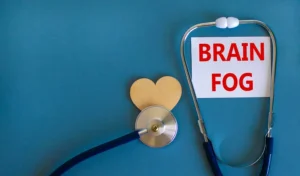AI-powered orb decentralizes access to psychedelic therapy to improve mental health

Qualitative research methods are increasingly used to examine patient accounts; however, currently, no systematic review exists that synthesizes these findings in relation to the use of psychedelics for the treatment of mental disorders. We used a standard alpha of 0.05; however any significant results should are psychedelics addictive be considered in the context of the number of statistical analysis performed. It is typically recommended to have at least 10 events per predictor variable for multivariate logistic regression, although recent simulation studies suggest as few as 5 events per predictor variable is sufficient [27].
Schedule I controlled substances
This makes qualitative research well-suited to explore the rich subjectivity of respondents’ inner experiences, their attributions of meaning, the treatment context, and help inform a more detailed understanding of these complex interventions and underlying psychological mechanisms. These may in turn better tailor future research as well as inform and improve therapeutic effectiveness. Qualitative inquiry can also complement quantitative research by generating, rather than validating, hypotheses, which can be tested using quantitative instruments.

Supportive Therapy Is Essential, Too
- Some research also suggests these psychedelics increase suggestibility, making a person more open to ideas discussed in therapy.
- Approximately one dozen Phase 2 studies have now been conducted using MDMA in populations with severe, treatment-resistant PTSD, and the results have been consistently encouraging.
- These mechanisms often overlapped; elements of one therapeutic mechanism also featured in descriptions of others.
Across substances and disorders, respondents report on the wide emotional scope of the experience, the increased access to a range of emotions, and the importance of the emotional content of their experiences. Emotions ranging from bliss, joy, peace, and love on one end of the spectrum, to anger, anxiety, terror, dysphoria, and paranoia on the other end, were reported by respondents in the majority of the articles. A slowed (or completely absent) perception of time and unusual bodily sensations were specifically mentioned by participants taking ketamine [84], while auditory effects, such as zapping or buzzing sounds, were only mentioned for ibogaine experiences [79, 86]. Abstract and transient visual phenomena (such as seeing animals, complex patterns, landscapes) and visions (immersive and personally meaningful) were reported by respondents in studies with psilocybin and ibogaine [79, 81, 82, 86]. To varying degrees, these visions contained autobiographical, relational, imaginary, dreamlike, indigenous, religious, and other elements.

The Johns Hopkins Center for Psychedelic and Consciousness Research
It also affects emotional perception, making users slower to perceive anger in other people and producing stronger responses to positive emotions [12]. Psychedelic psychotherapy, a unique remarriage of biological therapy and psychotherapy, has the potential to transform mental health care. Independent of substance or disorder, many patients reported how they experienced the treatment, and the ways interventions were structured. Trust and a good connection or rapport with study guides, therapists and ceremonial leaders were explicitly mentioned as important therapeutic aspects [53, 80, 83, 87, 89]. “Through this research, VA intends to gather rigorous scientific evidence on the potential efficacy and safety of psychedelic compounds when used in conjunction with psychotherapy,” said Terrence Hayes, VA press secretary, in a prepared statement.
Although the research on psychedelic medicine is promising, it’s important to note that these studies involved very careful administration of these drugs in a clinical setting under the supervision of doctors. Currently available research consists of very small, short-term studies, many of which are performed in specific groups of patients (such as people with life-threatening illnesses, for instance). This means that the findings from these studies may not apply to everyone being considered for psychedelic therapies.
- All the unstratified analyses had at least 10 events per predictor variable, with 21 to 379 events per predictor variable for mental health indicators besides the specific psychotic symptoms.
- The eligibility criteria for inclusion in the review were qualitative research design; peer-reviewed studies in English; based on verbalized patient utterances; and a level of abstraction or analysis of the results.
- In contrast, social behavioral models find that 5-HT release in the nucleus accumbens explains MDMA’s effects (Walsh et al., 2018; Heifets et al., 2019; Nardou et al., 2019).
- The value respondents attributed to surrendering to and overcoming intense, emotionally challenging experiences suggests that therapeutic alliance may be crucial in establishing patient safety.
- The acute pharmacological effects of the medicine, including potential adverse effects, resolve quickly and the safety profile is good.
- Psychedelic therapies necessitate a rethinking of mental health care delivery in which medication is integrally paired with psychotherapy and delivered in a novel setting and framework.
- Eventually, the state will roll out more rules relating to the psychedelic industry, including regulations surrounding “healing centers,” where people will go for therapy sessions.
Psychedelic medicine
- Psychedelic medicines allow a person to go within, to the pockets of the mind where traumas lurk, and begin to heal.
- A 2016 study of 29 people with cancer who had anxiety or depression related to their diagnosis compared those who got a single dose of psilocybin mushrooms to those who got a placebo.
- Psychedelic therapy uses psychedelic plant compounds that can induce hallucinations, such as LSD and psilocybin from “magic” mushrooms, to treat mental health issues.
- Despite the oft-reported ineffability (the inability to adequately verbalize the phenomenological content of their experiences), respondents in several studies did offer rather detailed descriptions of their experiences, as well as reflections on the intervention.
- Some of the most compelling results for MDMA as a treatment for mental illness have come from clinical trials involving people with PTSD.
